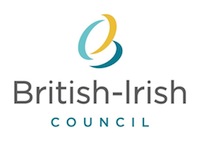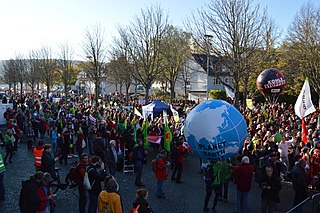External links
- www.bonnagreement.org - The Bonn Agreement web site (English version)
The Bonn Agreement is a European environmental agreement.
Following several oil spills in 1969, the coastal nations of the North Sea formed the Bonn Agreement to ensure mutual cooperation in the avoidance and combating of environmental pollution.
The agreement was revised in 1983 to include the European Union and again in 2001 to allow Ireland to join.
Members of the Bonn Agreement are Belgium, Denmark, the European Community, France, Germany, Ireland, the Netherlands, Norway, Sweden, and the United Kingdom.

The British–Irish Council (BIC) is an intergovernmental organisation that aims to improve collaboration between its members in a number of areas including transport, the environment, and energy. Its membership comprises the Republic of Ireland, the United Kingdom, the devolved governments of Northern Ireland, Scotland and Wales, and the governments of the Crown dependencies of the UK: Guernsey, Jersey and the Isle of Man. England does not have a devolved administration, and as a result is not individually represented on the Council but represented as a member of the UK.

The High Representative for Bosnia and Herzegovina, together with the Office of the High Representative (OHR) in Bosnia and Herzegovina, were created in 1995 immediately after the signing of the Dayton Agreement which ended the 1992–95 Bosnian War. The purpose of the High Representative and the OHR is to oversee the civilian implementation of the Dayton agreement. They also serve to represent the countries involved in the implementation of the Dayton Agreement through the Peace Implementation Council (PIC).

The Agreement on the Conservation of African-Eurasian Migratory Waterbirds, or African-Eurasian Waterbird Agreement (AEWA) is an independent international treaty developed under the auspices of the United Nations Environment Programme's Convention on Migratory Species. It was founded to coordinate efforts to conserve bird species migrating between European and African nations, and its current scope stretches from the Arctic to South Africa, encompassing the Canadian archipelago and the Middle East as well as Europe and Africa.

The Convention on the Conservation of Migratory Species of Wild Animals, also known as the Convention on Migratory Species (CMS) or the Bonn Convention, is an international agreement that aims to conserve migratory species throughout their ranges. The Agreement was signed under the auspices of the United Nations Environment Programme and is concerned with conservation of wildlife and habitats on a global scale.

Agreement on the Conservation of Small Cetaceans of the Baltic, North East Atlantic, Irish and North Seas, often abbreviated to ASCOBANS, is a regional agreement on the protection of small cetaceans that was concluded as the Agreement on the Conservation of Small Cetaceans of the Baltic and North Seas under the auspices of the UNEP Convention on Migratory Species, or Bonn Convention, in September 1991 and came into force in March 1994. In February 2008, an extension of the agreement area came into force which changed the name to “Agreement on the Conservation of Small Cetaceans of the Baltic, North East Atlantic, Irish and North Seas”. ASCOBANS covers all species of toothed whales (Odontoceti) in the Agreement Area, with the exception of the sperm whale.
The Peace Implementation Council (PIC) is an international body charged with implementing the Dayton Peace Agreement for Bosnia and Herzegovina. The Council was established at an implementation conference held in London, United Kingdom on December 8 and 9, 1995, subsequent to the completion of the negotiations of the accord the preceding month. The Council is, in effect, the realization, through the High Representative for Bosnia and Herzegovina, of the international community's governance of Bosnia and Herzegovina after signature of the Dayton Agreement. This international control over Bosnia and Herzegovina is to last until the country is deemed politically and democratically stable and self-sustainable.
Institute for European Environmental Policy (IEEP) is an independent, not for profit policy studies institute, a green think tank and a leading centre for the analysis and development of environmental policy in Europe and beyond. It has a strong reputation among national and European policy-makers and non-governmental organisations. The Institute is based in Brussels with a branch office in London and a network of partners in other countries, which are particularly strong in the member states of the EU. These include universities, environmental and professional associations in a range of sectors, research institutes and consultancies. IEEP brings a non-partisan analytical perspective to policy questions, engaging in both pressing short-term questions and long-term strategic studies.

The European Forest Institute (EFI) is an international organization established by the European states. It has 29 Member Countries, and c. 120 member organizations from 38 different countries working in diverse research fields. EFI provides forest-related knowledge around three interconnected and interdisciplinary themes: bioeconomy, resilience and governance.
Bonn is a city on the banks of the Rhine in the German state of North Rhine-Westphalia, with a population of over 300,000.
The Berlin/Bonn Act regulated the move of the Bundestag and parts of the government of Germany from Bonn to Berlin. It also regulated the move of certain Federal agencies and other German federal facilities to Bonn. The act was a consequence of the Hauptstadtbeschluss of 20 June 1991, which made Berlin the seat of government. Berlin had already been the capital of the united Germany since the Unification Treaty of 3 October 1990. The Berlin/Bonn Act was enacted on 26 April 1994. The act's full official title is Act for the implementation of the enactment of the German Bundestag of 20 June 1991 for the completion of the German unity.
This is a list of notable events relating to the environment in 1969. They relate to environmental law, conservation, environmentalism and environmental issues.

The Malin Sea is a marginal sea of the North-East Atlantic over the Malin Shelf, the continental shelf north of Ireland and southwest of Scotland. It is connected to the Irish Sea by the North Channel, and overlaps the Inner Seas off the West Coast of Scotland. Of the UK Shipping Forecast areas, the Malin Sea covers most of Malin, and by some definitions extends into Rockall. The area is within the exclusive economic zones of Ireland and the United Kingdom.
The Memorandum of Understanding on the Conservation of Migratory Birds of Prey in Africa and Eurasia is an international, legally non-binding agreement to protect migratory birds of prey.

The UN Campus in Bonn, Germany, is seat to 18 organizations of the United Nations. It was opened in July 2006 by then-Secretary-General Kofi Annan and then-Chancellor of Germany Angela Merkel and expanded in July 2013.

The 2017 United Nations Climate Change Conference (COP23) was an international meeting of political leaders, non-state actors and activists to discuss environmental issues. It was held at UN Campus in Bonn (Germany) from 6–17 November 2017. The conference incorporated the 23rd Conference of the Parties to the United Nations Framework Convention on Climate Change (UNFCCC), the thirteenth meeting of the parties for the Kyoto Protocol (CMP13), and the second session of the first meeting of the parties for the Paris Agreement.

The Brexit withdrawal agreement, officially titled Agreement on the withdrawal of the United Kingdom of Great Britain and Northern Ireland from the European Union and the European Atomic Energy Community, is a treaty between the European Union (EU), Euratom, and the United Kingdom (UK), signed on 24 January 2020, setting the terms of the withdrawal of the UK from the EU and Euratom. The text of the treaty was published on 17 October 2019, and is a renegotiated version of an agreement published half a year earlier. The earlier version of the withdrawal agreement was rejected by the House of Commons on three occasions, leading to Queen Elizabeth II accepting the resignation of Theresa May as Prime Minister of the United Kingdom and appointing Boris Johnson as the new Prime Minister on 24 July 2019.

The Protocol on Ireland/Northern Ireland, commonly abbreviated to the Northern Ireland Protocol, is a protocol to the Brexit Withdrawal Agreement that governs the unique customs and immigration issues at the border in the island of Ireland between the United Kingdom of Great Britain and Northern Ireland and the European Union, and on some aspects of trade in goods between Northern Ireland and the rest of the United Kingdom. Its terms were negotiated in 2019 and agreed and concluded in December 2020. Due to the thirty-year internecine conflict in Northern Ireland, the UK-Ireland border has had a special status since that conflict was ended by the Belfast Agreement/Good Friday Agreement of 1998. As part of the Northern Ireland Peace Process, the border has been largely invisible, without any physical barrier or custom checks on its many crossing points; this arrangement was made possible by both countries' common membership of both the EU's Single Market and Customs Union and of their Common Travel Area.

The EU–UK Trade and Cooperation Agreement (TCA) is a free trade agreement signed on 30 December 2020, between the European Union (EU), the European Atomic Energy Community (Euratom), and the United Kingdom (UK). It applied provisionally from 1 January 2021, when the Brexit transition period ended, before formally entering into force on 1 May 2021, after the ratification processes on both sides were completed: the UK Parliament ratified on 30 December 2020; the European Parliament and the Council of the European Union ratified in late April 2021.